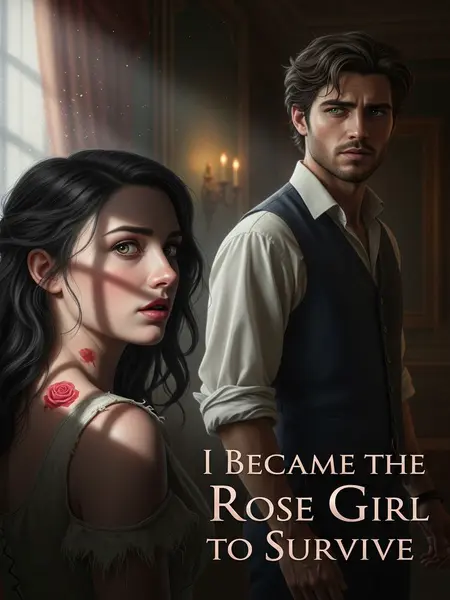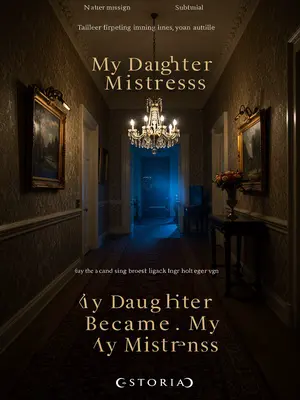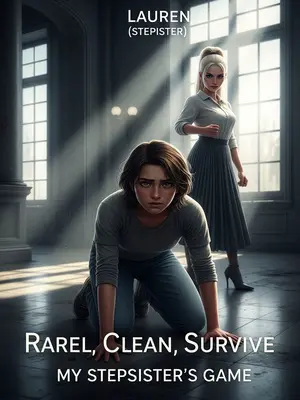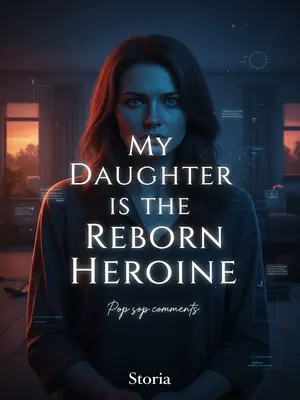Chapter 2: Sold for a Name
The next day, in Harrison’s study.
Sunlight filtered through the stained glass, painting the room in shades of blue and gold. Harrison sat behind the desk, every inch the master of the house.
Harrison looked up, eyes bright with surprise.
For once, he seemed almost hopeful. I wondered how long it would last.
“Yes. The girl has already signed.”
His subordinate, Peter Rowe, handed him the contract.
Peter was always precise, never a hair out of place. He slid the paper across the desk with practiced ease.
A crooked name was scrawled on it.
The ink was blotchy, the signature shaky. I felt a strange thrill seeing it—my new name, my new self.
“Faye,” Harrison read aloud. “What an unusual name.”
He said it slowly, as if tasting the word. I kept my face blank, giving nothing away.
My mother had given me that name. She was with me until I was five.
I remembered her voice, soft and warm, singing lullabies on stormy nights. The memory stung more than I cared to admit.
At five, I was sold to a traveling theater and became Red Velvet Girl. No one ever called me by my real name again.
The name was a mask, a costume I wore for years. But underneath, I was always Faye, even if no one else remembered.
“What’s this Faye’s background?” Harrison asked.
He tapped the contract, his expression unreadable. Peter cleared his throat, ready with the details.
Peter kept his voice low as he reported, “She’s from a fishing town. Her dad’s sick, her sister’s in a bad spot with her in-laws, so she’s selling herself for her father’s treatment.”
He recited it like a grocery list, but I could hear the faint note of pity in his voice.
“We’ve already checked the town records. It matches.”
Peter always double-checked his facts. Harrison nodded, satisfied.
“Good,” Harrison said. “Send people to keep an eye on her family.”
His tone was cool, businesslike. I wondered if he ever thought about the girls he bought—if he ever saw them as real people.
He was nothing if not thorough.
To buy a poor girl, you had to pay her family off—and keep control of them as leverage.
It was a cold, calculated system. I’d seen it play out a hundred times, but it still made my stomach turn.
But Harrison didn’t know: my family couldn’t be used to threaten me.
They’d already sold me once. I doubted they’d lose sleep over it.
I hadn’t lied—my father was indeed sick, but his illness was a gambling addiction.
He’d bet away everything we owned, chasing luck that never came. The only thing he ever won was the right to be called a fool.
Because of it, he’d even thought about selling me.
I was just another chip in the game, another bet lost. It was almost funny, in a way.
As for my sister, she was the one he’d wanted to sell at first. She was so afraid, she drugged me and sent me, unconscious, onto a bus to Maple Heights.
I woke up with a splitting headache and no idea where I was. By the time I figured it out, it was too late to go back.
“Faye is a good choice. The broker did well this time—reward her.”
Harrison said it without looking at me.
He didn’t look at me as he spoke, but I felt the words all the same.
“Contact the doctor and the artist. Within three days, have the broker take Faye to the east side clinic and brand the rose mark.”
His voice was steady, as if branding a girl was no different than ordering new drapes.
“Yes, sir!”
Peter left to carry out his orders.
He moved quickly, eager to please. I watched him go, wondering if he ever thought about what he was really doing.
I poked at the candle on the desk, a faint smile curling at my lips.
The wax was warm and sticky on my fingers. I watched the flame flicker, feeling oddly calm.
Three days.
In three days, I’d no longer be Lila Monroe the chorus girl. I’d be Faye again.
It was a strange sort of freedom, even if it came at a price.













